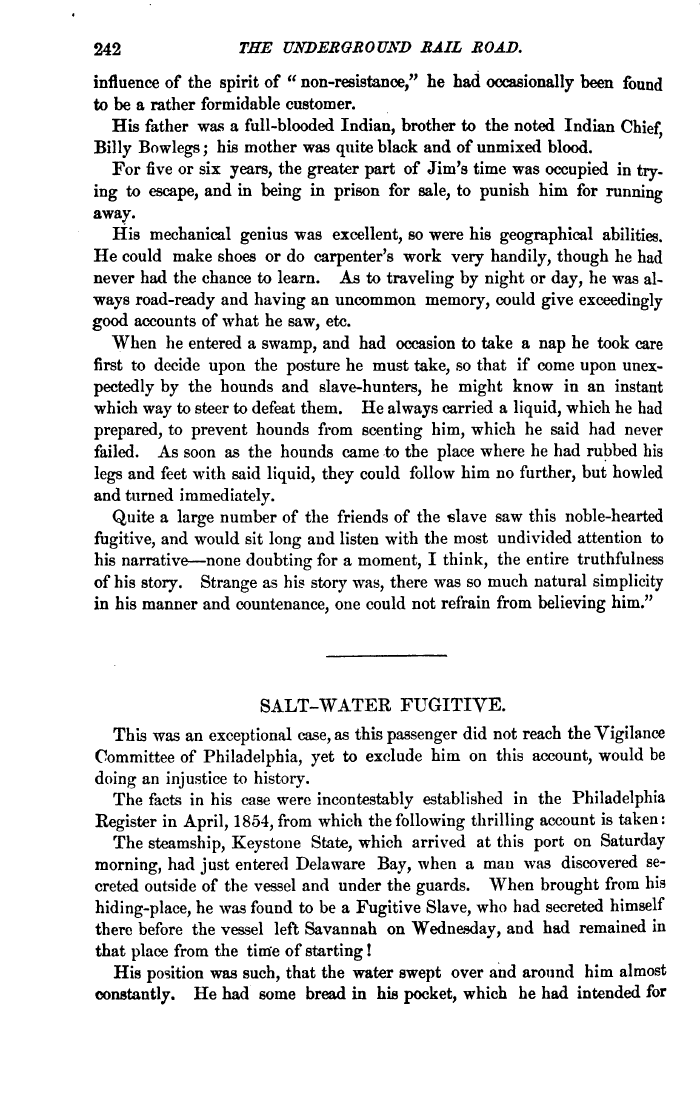 |
||||
 |
||||
| 242 THE UNDERGROUND RAIL ROAD. influence of the spirit of " non-resistance," he had occasionally been found to be a rather formidable customer. His father was a full-blooded Indian, brother to the noted Indian Chief Billy Bowlegs; his mother was quite black and of unmixed blood. For five or six years, the greater part of Jim's time was occupied in trying to escape, and in being in prison for sale, to punish him for running away. His mechanical genius was excellent, so were his geographical abilities. He could make shoes or do carpenter's work very handily, though he had never had the chance to learn. As to traveling by night or day, he was always road-ready and having an uncommon memory, could give exceedingly good accounts of what he saw, etc. When he entered a swamp, and had occasion to take a nap he took care first to decide upon the posture he must take, so that if come upon unexpectedly by the hounds and slave-hunters, he might know in an instant which way to steer to defeat them. He always carried a liquid, which he had prepared, to prevent hounds from scenting him, which he said had never failed. As soon as the hounds came to the place where he had rubbed his legs and feet with said liquid, they could follow him no further, but howled and turned immediately. Quite a large number of the friends of the slave saw this noble-hearted fugitive, and would sit long aud listen with the most undivided attention to his narrativeŚnone doubting for a moment, I think, the entire truthfulness of his story. Strange as his story was, there was so much natural simplicity in his manner and countenance, one could not refrain from believing him." SALT-WATER FUGITIVE. This was an exceptional case, as this passenger did not reach the Vigilance Committee of Philadelphia, yet to exclude him on this account, would be doing an injustice to history. The facts in his case were incontestably established in the Philadelphia Register in April, 1854, from which the following thrilling account is taken: The steamship, Keystone State, which arrived at this port on Saturday morning, had just entered Delaware Bay, when a mau was discovered secreted outside of the vessel and under the guards. When brought from his hiding-place, he was found to be a Fugitive Slave, who had secreted himself there before the vessel left Savannah on Wednesday, and had remained in that place from the tim'e of starting! His position was such, that the water swept over and around him almost constantly. He had some bread in his pocket, which he had intended for |